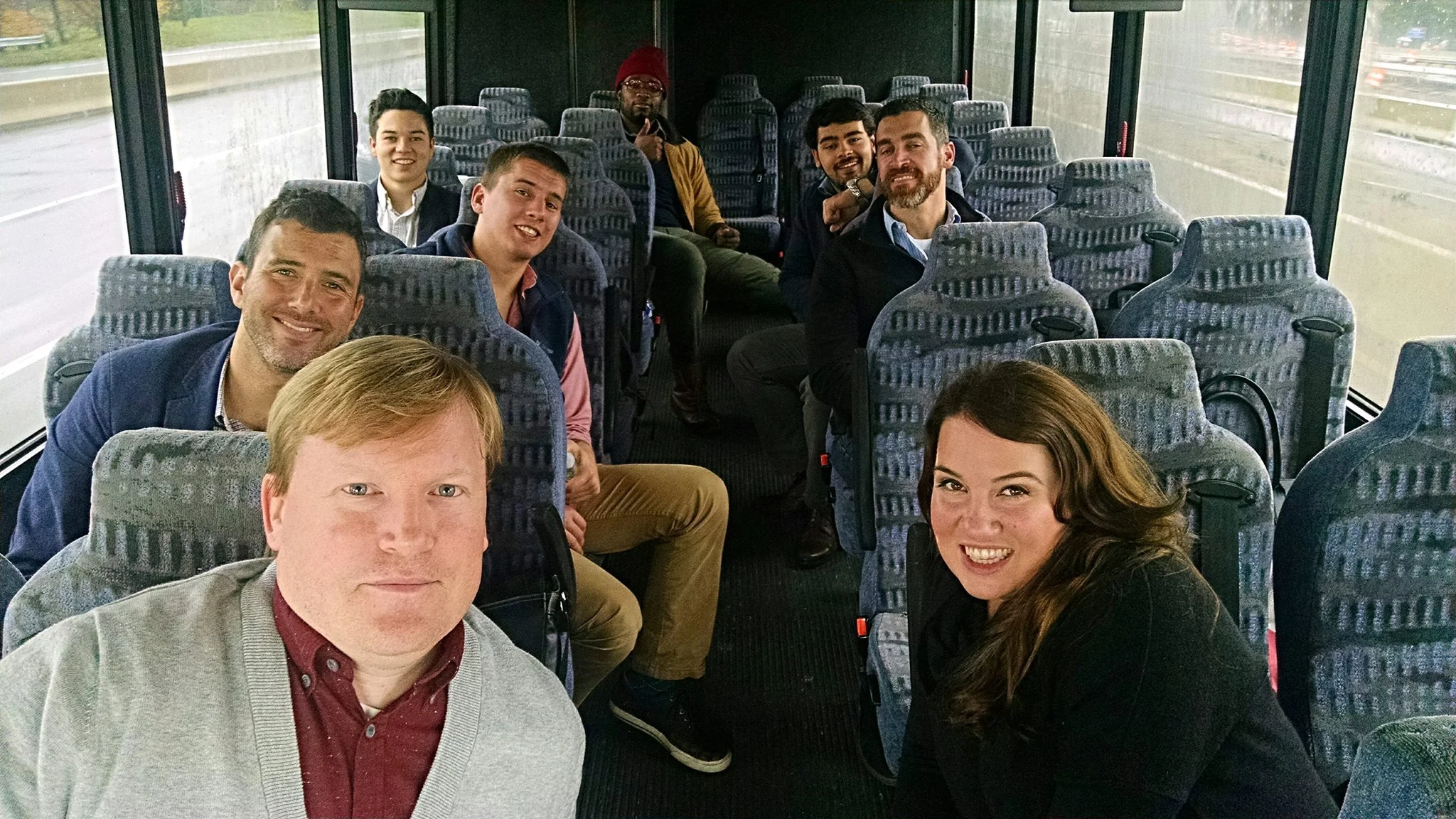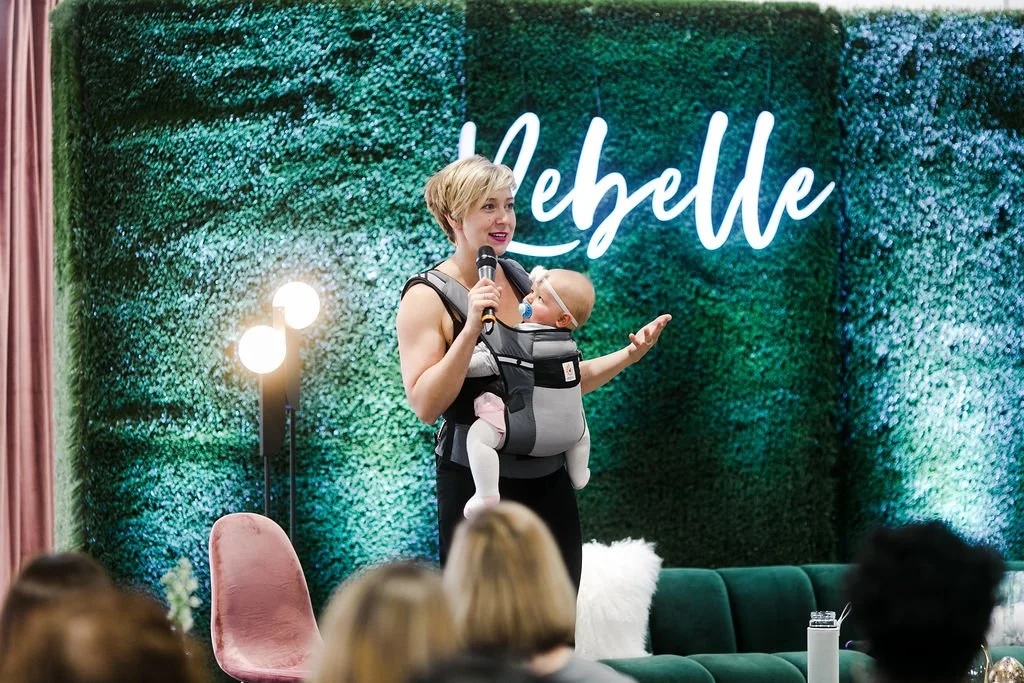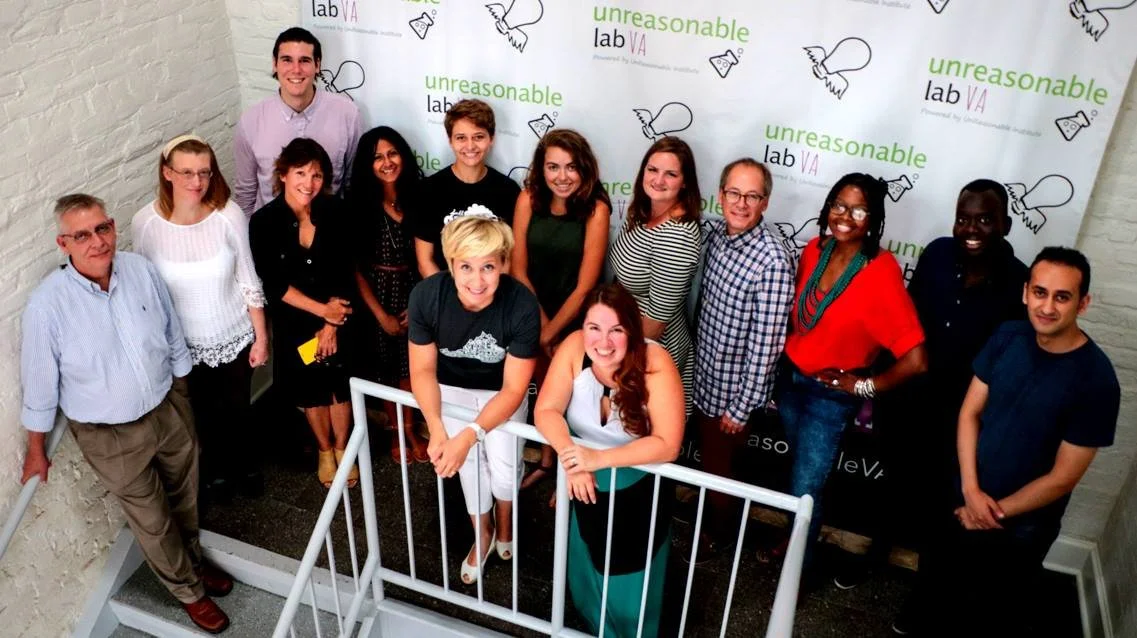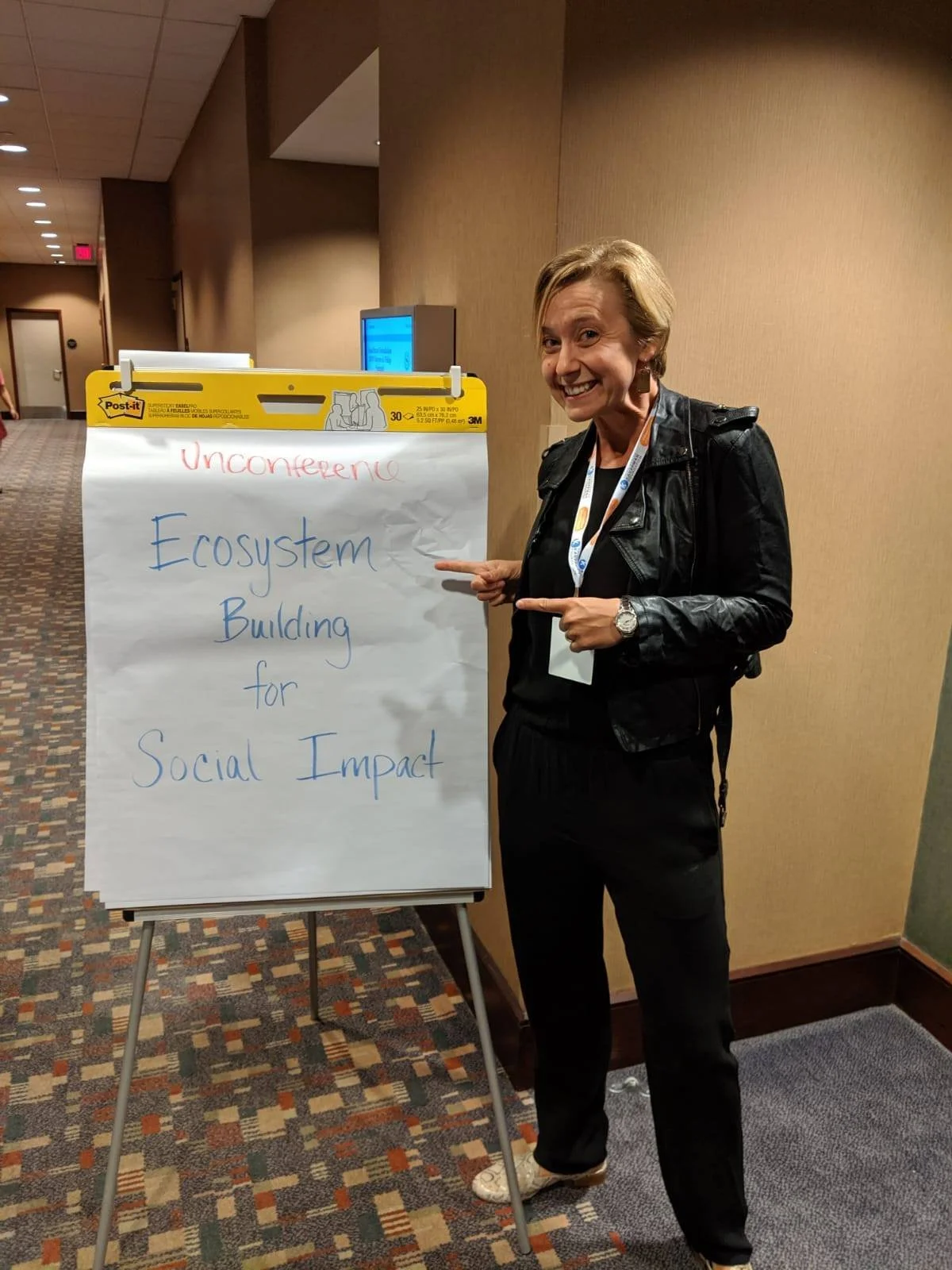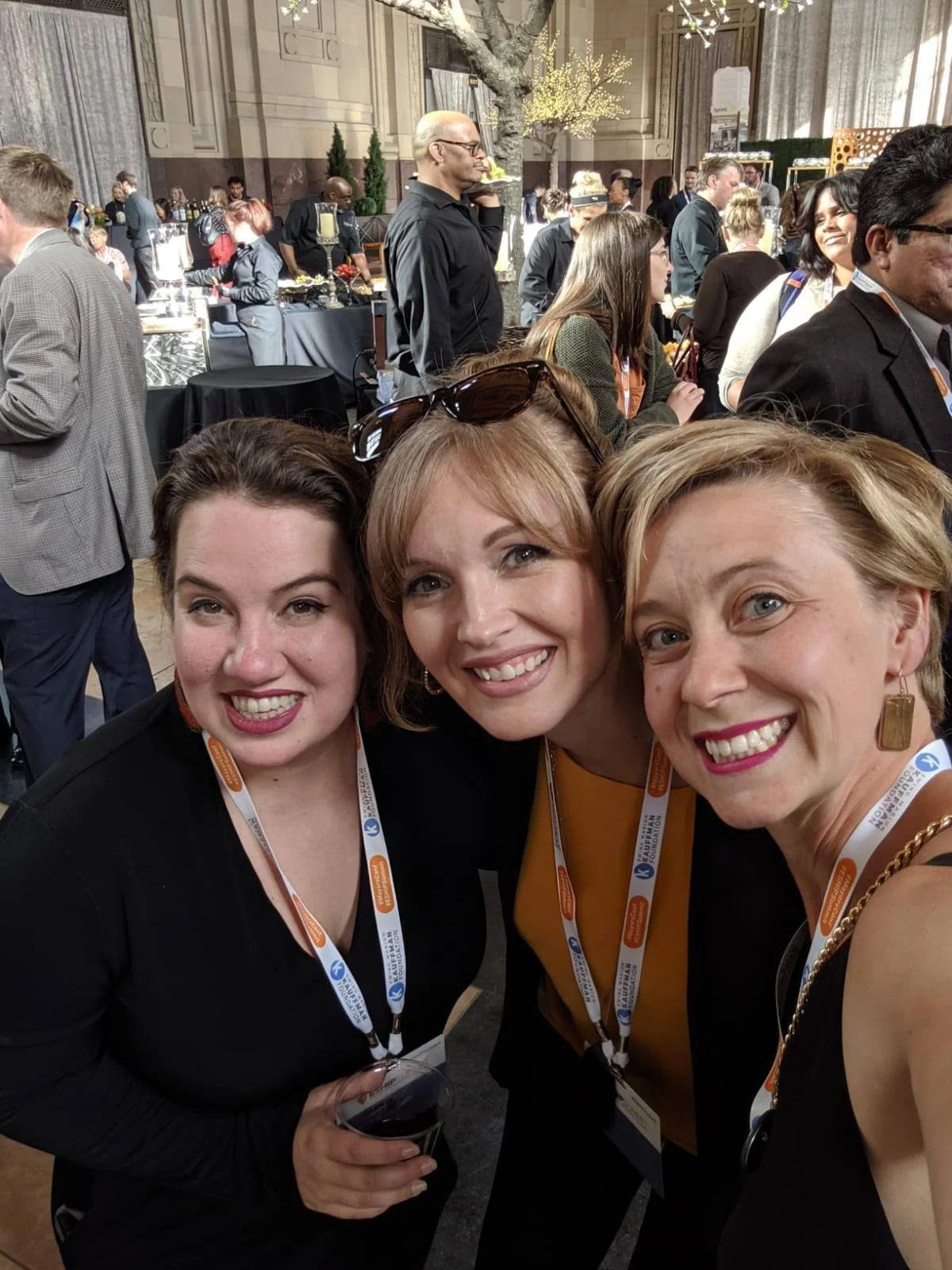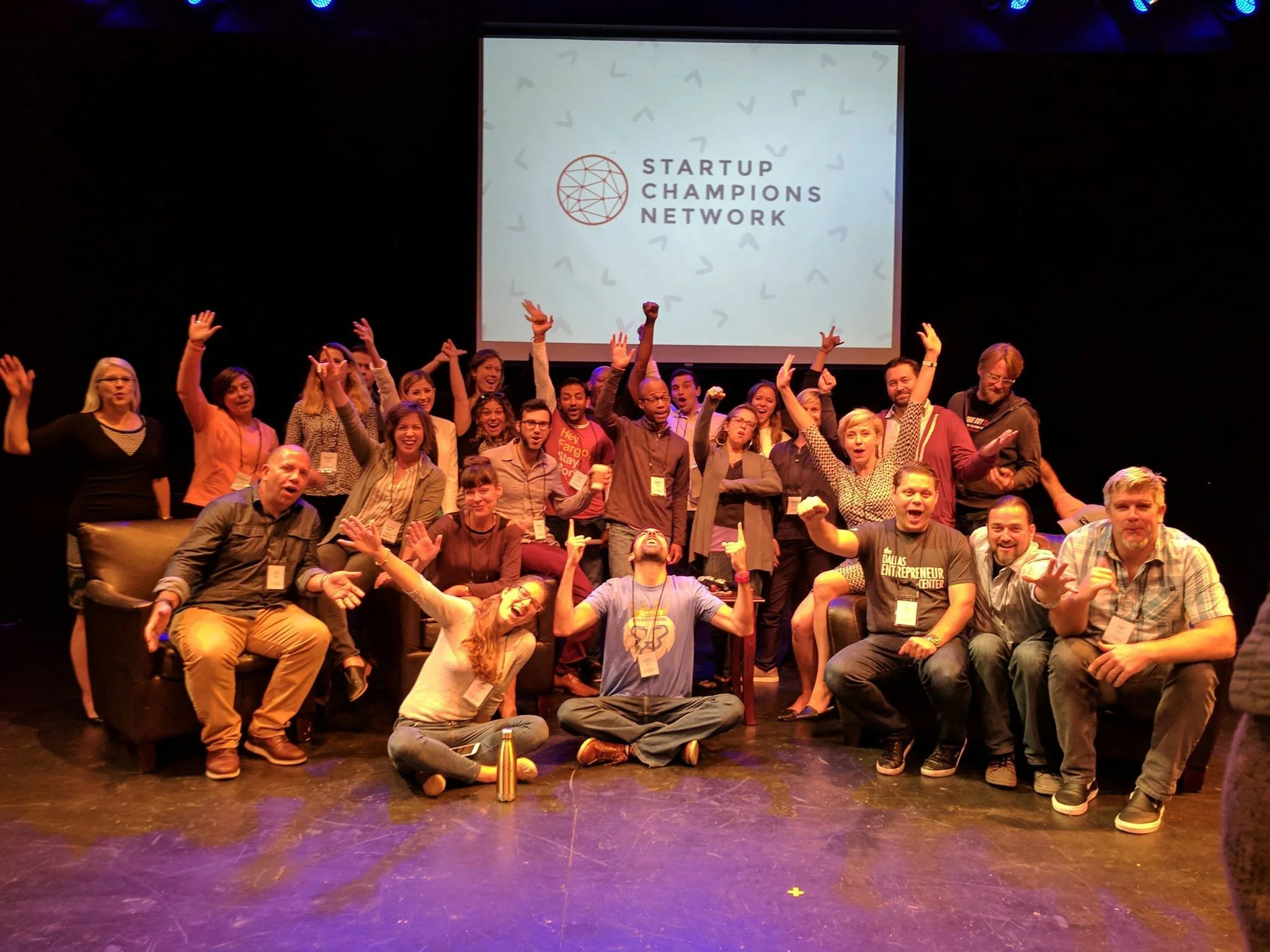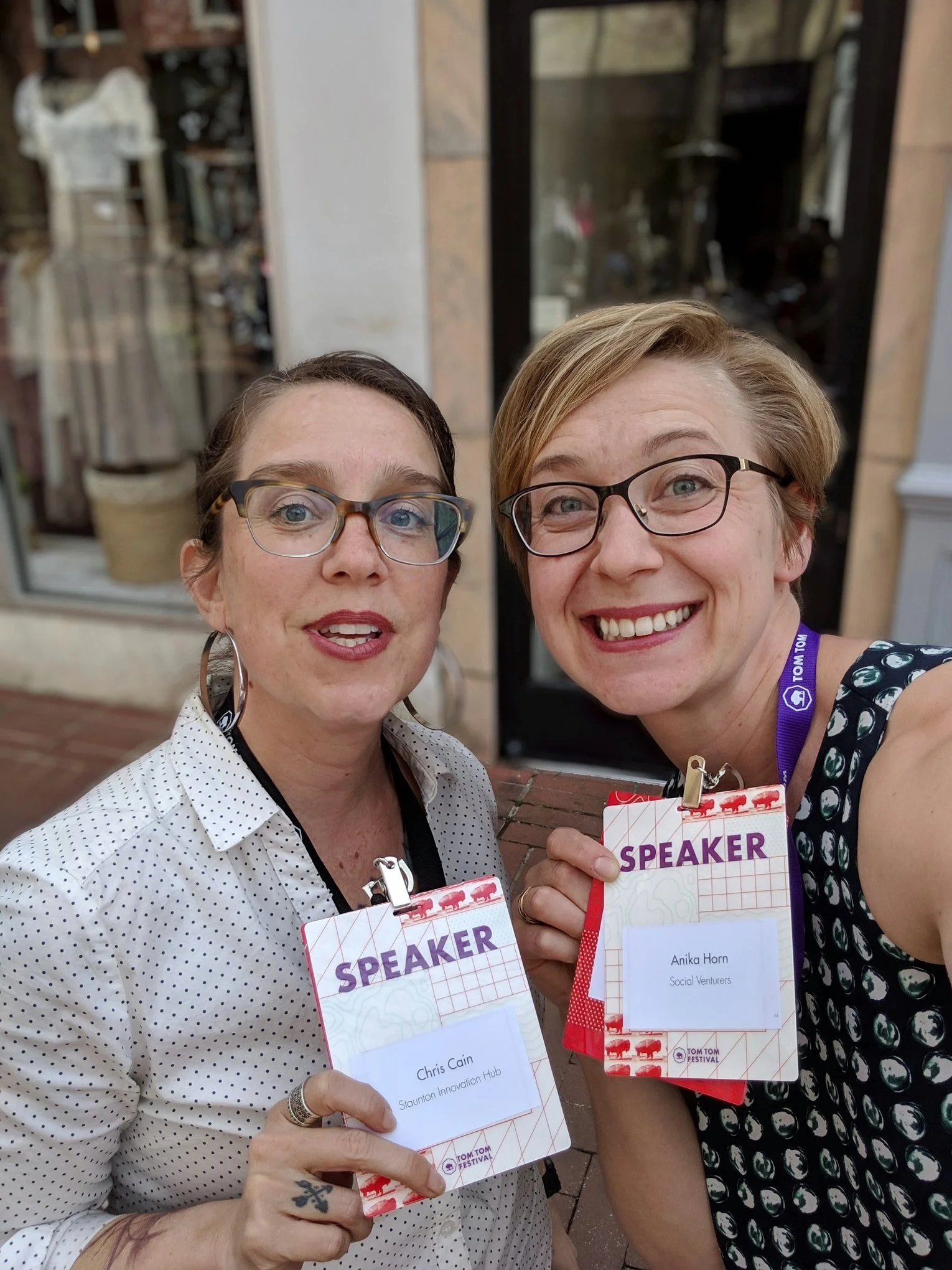the work of Social Venturer and Avid Storyteller, Anika Horn
SCN Member Anika Horn wears many hats in the world of social entrepreneurship and ecosystem building. She is the Chief Social Venturer for her company, Social Venturers; Director of Ecosystem Building for Shenandoah Community Capital Fund; A regular contributor to Ecosystem Builder Hub and she just launched a podcast: Ecosystems for Change. OH and did we mention she’s on the planning team for the SCN Spring Summit?
To summarize Anika in one word: DOER.
Underneath all of those hats - and at the core of what gets Anika out of bed every morning - is supporting purpose-driven entrepreneurs. She does this through programming, storytelling, and just overall cheerleading from the sidelines.
After moving to the US from Germany in 2015, Anika hit the ground running when she first entered the ecosystem of Richmond, Virginia.
“I moved to the US in the summer of 2015 not knowing anyone but the man who would soon thereafter become my husband. The skill set, experiences and passion I brought with me from Germany were all tied to supporting social entrepreneurs but arriving in Richmond, VA, as an immigrant I didn't know where to put all that energy. Early on, I met Larkin Garbee and Todd Nuckols who took me under their wings. I told them I wanted to work with entrepreneurs and they responded with ‘Then roll up your sleeves, we have a lot to do!’ They gave me a shot when they barely knew me and that kind of trust and willingness to support me put the wind under my wings. I talk about my journey from social enterprise enthusiast to ecosystem builder in episode 1 of my podcast Ecosystems for Change,” says Anika.
Lighthouse Labs cohort on their way to Demo Day
And roll up her sleeves she did! Anika helped grow the Richmond entrepreneurial ecosystem through multiple programs and initiatives: She co-founded Unreasonable Lab VA (Virginia’s first mini-accelerator for social entrepreneurs), Co.Starters VA (a startup program for idea-stage founders), and Rebelle Con (a conference for entrepreneurial women). She also mentored founders at Lighthouse Labs (a nonprofit accelerator for high-growth companies) and Virginia Commonwealth University’s pre-accelerator.
While she was doing this, she served as “B Keeper” for Richmond IT consultancy Impact Makers, helping build and grow the community of Certified B Corps and Benefit Corporations.
But when was the exact moment she realized she was an entrepreneurial ecosystem builder? When she attended an SCN summit, of course!
“I first realized I was an ecosystem builder when Larkin Garbee brought me to my first Startup Champions Network Summit in Santa Barbara in 2016. I remember listening to Andy Stoll and Amanda West explaining what SCN did and what an ecosystem builder was. The penny dropped and I was bouncing off the walls throughout the entire Summit because I was so relieved to find that there were other people who felt as passionately about supporting entrepreneurs in their communities as me. For the first time having the language and concept for what we'd been doing ad hoc in Richmond, VA, about was really empowering. I suddenly felt legitimate, and less alone,” says Anika.
Anika left Richmond to live in Toronto, Ontario after her husband relocated for work and then moved to Chapel Hill, North Carolina in 2020. Since leaving Virginia, she has been deep into research, exploring the topic of ecosystem building with other practitioners.
“Out of that came the Keystone Program, my Masterclasses, and overall my own framework for how we can become more holistic and effective ecosystem builders,” says Anika. “Now I’m transitioning out of this research phase into being an ecosystem builder again at Shenandoah Community Capital Fund (SCCF). I will be helping to convene an entrepreneurial ecosystem in the Shenandoah Valley, which spans 143 miles along Highway 81 in Virginia.”
Anika’s new role is to help assemble a regional coalition of entrepreneurial support organizations that focus on women and BIPOC entrepreneurs as well as tech and tech-enabled startups valley-wide.
“Under that falls a lot of regional outreach and storytelling for the entire Shenandoah Valley. That means we are going to co-create the brand of the Shenandoah Valley as a place where entrepreneurs from all backgrounds can thrive and succeed. All of that happens in close collaboration with entrepreneurial support organizations all throughout the Shenandoah Valley, which is predominantly rural. We are also working on a Community Navigator Program focused on supporting women and BIPOC entrepreneurs in the Shenandoah Valley.”
A little background on the work of SCCF can be found in the blog where we highlighted Executive Director Debbie Irwin, who brought Anika onboard shortly after. SCCF is currently deploying a hub and spoke model with SCCF as the hub. One of Anika’s roles is to help build their capacity, deliver technical assistance, and create a community of practice around ecosystem building.
“I’m here to help build this meta ecosystem across the Shenandoah Valley and train individual communities in becoming more ecosystem-focused,” Anika adds.
On being the new kid in the ecosystem
“The initial unit of exchange in startup communities is one on one connections.” - Chris Heivly, Techstars podcast
If you’ve been keeping track of Anika’s new cities at this point you’ve probably gathered that she’s been the new kid on the block a time or two: Richmond, Toronto, Chapel Hill, and soon the Shenandoah Valley. That gives her a very unique perspective of going from outsider to insider several times over.
Here’s her advice to ecosystem builders who find themselves in new ecosystems and want to dig in to do the work.
“Start with one-on-one relationships. I think too many people who come into ecosystem building think that traditional models of leadership are what’s going to help you move forward in your community when in reality I’ve found that the best thing you can do as an ecosystem builder is to have many conversations. Come with curiosity and the willingness to listen, learn, and go from there. When I moved to Richmond, I had 20+ coffee meetings in the first month just trying to meet everybody and gain insight into who is who and who is doing what. When I moved to Toronto I did the same thing and by virtue of Toronto being so much bigger, I sometimes got the sense that we were talking about different cities. One person would tell me social entrepreneurship is really established and there are all of these funding sources and such great support and then the day after I would talk to a social entrepreneur who would tell me ‘There’s nothing here.’ But having those one-on-one relationships and conversations helped me gain a grassroots understanding of what was going on, where the barriers were, and what some of the misunderstandings were that were hampering the process. That is also going to be my approach in the Shenandoah Valley.”
Thinking Regionally
While Anika sinks her teeth into her new role in the Shenandoah Valley region, there’s another region she still has work in: The Triangle. Anika has lived in Chapel Hill, North Carolina, throughout the pandemic and is currently on our Summit Host Team.
As part of the #SCNTriangleNC planning team, she’s heading up the “Regional Approach to Equitable Ecosystem Building” track. Throughout this track, she will highlight ecosystems that go beyond the limits of one city - like The Triangle and Shenandoah Valley.
“We have a group here in the Triangle called Triangle ESO Network that hosts a meeting once a month between ESOs in Raleigh, Chapel Hill, and Durham to talk about what they're working on. We’re using a similar approach in the Shenandoah Valley to convene the entire region, which brings its own unique set of challenges in terms of coordination, storytelling, gathering people, etc. Trying to do an asset map on such a large and rural area is a whole different beast versus a traditional city. In the “Regional Matters” track at the Spring Summit, we want to shed light on challenges and opportunities that come with building regional ecosystems,” she shares.
Summit Ramp Up
As we prepare for the upcoming Summit, Anika is excited to welcome new members and new ecosystem builders. As an instructor who has already built out her own Ecosystem Building curriculum, Anika is our go to for the Summit’s Ecosystem Building 101 / New Member Orientation.
“I am excited about welcoming new members who have never been to the summit. I want them to feel that they belong and have come to the right place, just the way I felt in Santa Barbara six years ago. There’s a little bit of magic in being given the language and community for what you’ve been doing for years. The new member orientation might just be my favorite part. I love welcoming new members and helping them make the most of the summit,” she says.
“The second thing I’m really stoked about is the focus on equitable ecosystem building, which in a place like Durham is very powerful. I’m excited to learn more about the history of Black Wall Street and how we can build more equitable ecosystems with the Durham Case Study in place.”
And finally, another new summit piece: Skills Labs! That’s right, the 4th track of the summit will be skills based.
“I’m really excited about the skills labs. It’s something we’ve never done before and thanks to the team at Forward Cities, we’ll be able to teach some basic-yet-essential skills in facilitation, storytelling, etc. The skills labs are an incredible addition to the summit. Already, I want to clone myself to attend ALL sessions in parallel!”
She adds, “And lastly, just by virtue of being in the South, the food is going to be great. We’re intentional about creating a Summit experience that incorporates local entrepreneurs, restaurants and artists - something I gained a deep appreciation for at the Summit in Fargo, North Dakota.” For those who don’t know, Anika is a bit of a foodie, sharing her elaborate cheese boards and food explorations on her Instagram, @AnikaLives.
Why she’s a member of SCN
“I have so many reasons. I think this work takes a lot of practice, patience and stamina and we simply need our peers to keep going and learn from each other. I see SCN as a guild of practitioners through which we share best practices and support each other in moving forward, which is very typical in so many other careers but not yet among ecosystem builders. To me SCN is one of the very few, if not the only, organization who truly understands ecosystem building and gives us a platform to just be there for each other. I always joke that SCN summits are half professional development and half group therapy. That’s why I love coming to summits, meeting new ecosystem builders, connecting with the OGs of the movement because it reminds me of why we’re doing this work and why I continue to invest so much time and energy in the podcast and writing blog posts and doing stuff that is not paid but hopefully moves our field forward.”
Speaking of blog posts and podcasts, if you haven’t already checked out her podcast, do so here. She’s interviewed a host of incredible ecosystem builders in Season 1 (many of whom are SCN members). She also tells stories on her blog, and shares great resources in her newsletter.
If you’re interested in becoming a Storyteller in your ecosystem, Anika shares this advice:
“Start with what you have and what you enjoy. You don’t have to have a degree in journalism or writing or media production. Just start with what’s already in your community and see what the assets are. A really simple way to do that is…
Think about the entrepreneurs you personally admire, look up to, are a fan of,
Have conversations with them, and
Shout them from the rooftops!
When I say start with what you have: there are so many tools out that provide you with a platform to talk about what you’re passionate about that you can jump in at very low cost as long as you bring the passion.”
Will Anika see you at the Summit? Learn more and register.



